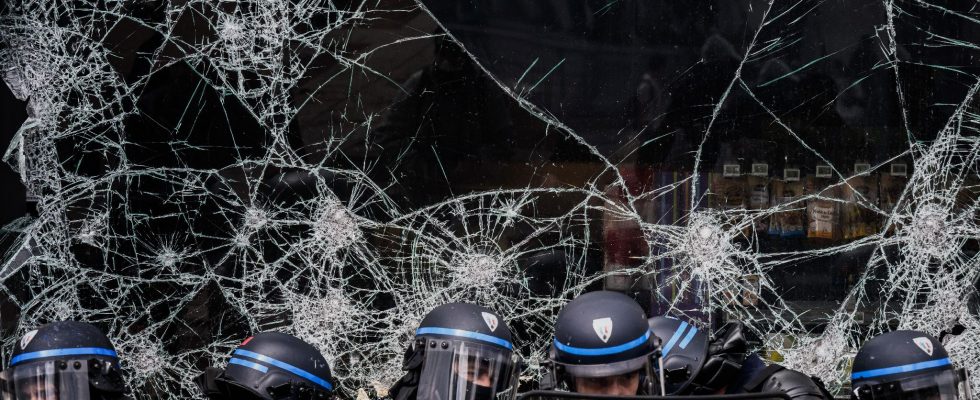For some time now, the question of political violence has again been invited into the debates, both through notable essays such as those by Andreas Malm (How to sabotage a pipeline) only after the resentment felt about the pension reform. In such situations, one always finds rebels in the amphitheater to blow on the embers of frustration hoping to see the flame of the Great Evening spring from it and, as everyone knows, the revolution is not a gala dinner.
In our societies, according to the famous analysis by Max Weber, it is the State which has the monopoly of legitimate violence. A concept that is very much abused in contemporary debates. This monopoly, for example, does not mean that the citizen never has the right to use violence but only that he can do so legitimately only if the State has previously approved the framework in which he exercises it ( to defend themselves, for example). In the brouhaha which claims the right to discuss this notion, some affirm that police violence cannot exist strictly speaking (since they are agents of the State) while others believe they can question this monopoly because that a particular gendarme behaved badly (by using, for example, disproportionate force). Both often clash on television sets but we can say that they have not really understood the Weberian concept. There is no need to answer them more than this to the first: when an agent of the State uses force, he does not always do so legitimately; and to the latter: an agent of the state can abuse his power but that has nothing to do with the Weberian understanding of legitimate violence.
As clumsy as it is, the questioning of this state monopoly authorizes the reintroduction of the use of force to assert its ideas and values. But one question remains: when is it legitimate to use it? The little music that has been rising in the ranks of extremists for a few years is that militant brutality would be a proportionate response to the social inequalities and humiliations that certain categories constantly suffer. The argument has become so commonplace that even an ex-footballer turned actor like Eric Cantona took it up on his own a few days ago on TF1, stressing that contempt or simple words can constitute violence.
Polysemy of the word “violence”
The play on the polysemy of the term “violence” is inconsistent both from a moral and logical point of view. It opens up the possibility of creating a continuum between realities that have nothing in common. This continuum would rightly shock anyone if, for example, an abusive husband summoned him – as some sometimes have the nerve to do – to justify his attitude with a feeling of humiliation. It is a type of manipulation that John Stuart Mill in his treatise on logic had named: “sophism by ambiguity”. It is a question of finding abusive correspondences between homonymic terms. In the past, a popular belief asserted that strong drinks gave strength. Here, it is the term “violence” that serves as a revolving door between the anger that everyone can understand and the implicit authorization of the use of physical punishment.
However, it is also this sophism by ambiguity which has always served as a justification for terrorist action. We find it just as well in the anarchist Emile Henry, author of the attack on the Terminus café in 1894, as in the pen of bin Laden in his “letter to America” dated November 2002. It is still this type of rhetoric used by the perpetrators of the mass shootings from Columbine in 1999 to Virginia Tech in 2007: at one point, they felt humiliated.
To euphemize the term violence by pretending that it covers facts as disparate as contempt, mockery or even indifference is to open the door wide to the unleashing of physical brutality. That intellectuals, perhaps because they are not aware of what real violence is because they have not experienced it in their personal lives, can use “sophism by ambiguity” is a warning signal . Most often these weak signals announce nothing in reality apart from the inconsistency of those who emit them; sometimes, however, they precede a tragic dawn of which history has the secret. It will take away some of the prophets of brutality among the victims, it will transmute the others into executioners. We have seen both situations occur.
* Gérald Bronner is a sociologist and professor at the Sorbonne University
